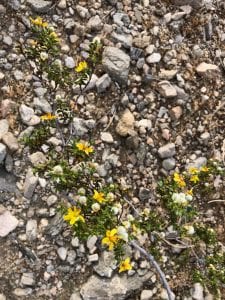
Another semester, another set of evaluations.
Evaluation time always stresses me out, to be frank. I’m still working towards tenure and although my evaluations are generally high, I know they’re vitally important to the tenure and promotion process so I worry.
But it goes beyond simple self-interest. If it were just about not getting tenure, it wouldn’t be so important. It’s also about self-improvement. Part of why I dislike the end-of-semester evaluation process is because it’s a one-way conversation. I would have liked to genuinely sit down with critical students and engage with these critiques earlier in the process, not because I worry about the tenure process, but because I believe in what I do and I believe in the value of understanding when what I do doesn’t land with students the way that I intend.
This semester, I had 2.5 critical evaluations (2 sets of critical comments; 1 set of semi-critical numerical markings with no comments) out of 57 students in my pre-service credential courses. It’s a 95% approval rate, my best friend pointed out to me. You can’t make everyone happy, my husband told me. I know, logically, that these are still high evaluation marks, particularly given the stances I took last semester in the courses I taught. These things are true, but the critiques I received offer points of reflection.
The two major critiques that I received in the Fall had to do with responding respectfully to student concerns (by 2 students) and bias in the course that I held on the day following the election (1 student). Another critique was that I shouldn’t assume people have time for endless reflection (1 student) and that there’s too much work in my courses (there is a lot of work, but, to be fair, I gave warning of this at the beginning of the semester…and frankly, good teaching is a lot of work).
So, here’s the thing–I don’t want to actually spend this reflective moment justifying myself. Some of these critiques (reflection, hard work, advocacy) are part of who I am and my professional identity. I embrace and accept that those things.
But, I am listening to the critique as well. I have been thinking a lot, in this post election era about the importance of listening and empathy. No, it wasn’t my intention EVER to disrespect or belittle a student. It also wasn’t my intention to create an unsafe, biased space on the day after the election (in fact, it was my intention to do the exact opposite). But, I am acutely aware of the power that I have as a professor, and respect for students is at the CORE of who I am, so I want these students to know that (whether or not it was my intention or even whether or not I agree with them), I hear you; I get that you were left in a space where you felt disrespected, and I am using your critique to think about ways to be more vigilant in expressing my intentions and creating a space for dialogue where more voices can be heard. We can only ever move forward if we can begin to listen to one another instead of staying safely in our own camps.
And, if the student who wrote the evaluation that referred to being a “failure of a teacher” if their students don’t vote is reading this blog, I want to apologize if I said anything like that. I honestly do not recall saying this, and I think it’s an incredibly problematic statement, given that some students (undocumented students, immigrant non-naturalized students) don’t even have the right to vote in this country AND given the complexity of teaching–no one point makes a teacher a failure. We are all trying our best. I do think that it’s important to teach students civic engagement. I don’t apologize for that. I do think that students need to participate in their families, communities, and society in productive ways. And, I think it’s important to vote. Voting is one of those ways. But, I certainly wouldn’t ever judge a teacher’s success based on the voting rate of their students. So, for that, if I said that or left you with that, I apologize.
But, here’s the thing. We are all trying our best. I am too. I’ve been at the teaching thing for a long time, yes, and the human thing for even longer. But, I am imperfect. My beliefs and intentions don’t always match my actions or how I’m received. Sometimes they do and we’ll disagree. Granted. Sometimes they don’t and my actions will get misinterpreted. Granted. Sometimes, I need to be more thoughtful about how I speak out of emotion about the things which I am passionate about. Granted. But I cannot let the critique stop me from action, from advocacy, and from engaging with that which I fear.
And that is why, despite the fact that I also don’t have so much time for reflection, I do it: because I have to keep acting every day; because the course of a semester is long and I have just begun a new semester where I am certain to make mistakes; because this work is my calling. I have a deep love for my students and their future students. Personally, I want to keep improving. And as a member of this society, I constantly see openings for action that call me to do better. But I refuse to be driven by the fear of critique.
The work is hard. And critique is hard…particularly when you are trying to step out and be heard. But, all of this is necessary if we are to be the change that we wish to see–whatever one’s version of that change may be.





